Million two hundred
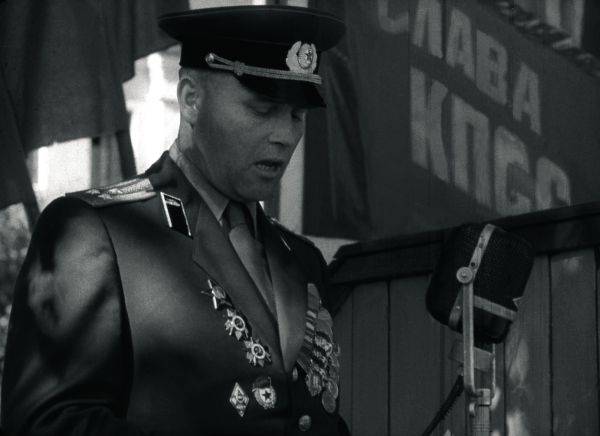
"The army is not for you"
I still have rich and distinct childhood memories associated with the Khrushchev army contraction. We lived on the territory of a military town in Dagestan’s Buinaksk, where the 4-I Artillery Division of the High Command Reserve was deployed. The division in which my father served was commanded by Colonel Galaktion Eliseyevich Alpaidze, Hero of the Soviet Union, a man of the first hour of the war who received his baptism of fire in July 1941 of the year near Smolensk.
Major Alpaidze, commander of the artillery regiment, deserved the "Golden Star" in his victorious 1945: during the Balaton defensive operation, Alpaidze was wounded three times, received concussion and temporarily lost his hearing. About the fighting of the regiment he was informed in writing. Without leaving the battlefield, the major gave the necessary orders through his adjutant. In this battle, the regiment destroyed 10 German tanks, 23 firing points and suppressed the fire of six enemy batteries ...
I remember distinctly his clearly tailored luxurious colonel's hat made of beautiful silver astrakhan and the Golden Star on his chest; I will never forget the picturesque picture: the bright sun is shining, the snow-capped peaks of the Caucasus Mountains shine in its rays, and Colonel Alpaidze at the head of the division, after successfully completing the exercises, ceremonially marching along a troop column along the streets of Buynaksk, and we, boys, ran out into the street and all eyes look ...
In 1959, the division was disbanded, having previously replaced its commander, who was distinguished by an unpredictable southern temperament. Most likely, the authorities feared excesses from the divisional division and preferred to remove him from Buynaksk in advance. Alpaidze received a new appointment: first to the Kapustin Yar missile range, then to the Plesetsk cosmodrome, which he created from scratch. He resigned as a lieutenant general ...
Fate was favorable to the brave commander, which cannot be said about the overwhelming majority of the officers of his division: many front-line soldiers were dismissed from the army without a pension; who did not have enough year, to whom - two; there were those who had only a few months left to serve until retirement. “The army is not for you sobes”, - such officers were harshly told when they were fired.
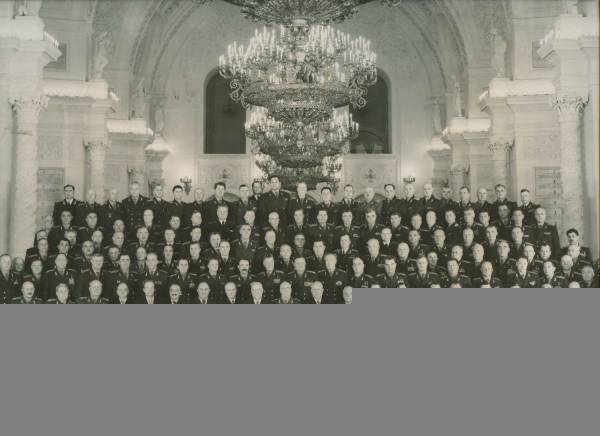
"Three times two hundred - the court of honor - one million two hundred"
The process of disbanding the artillery division in which my father served, I witnessed with my own eyes. I remember the military town, from which life had suddenly disappeared, and the empty one-storey officer's cottages for two families. Yesterday I went there to visit my acquaintances, but today I walked: the doors were wide open, the wind was walking in the deserted officer’s apartment, the whole family left for some unknown place. The whole town seems extinct.
My dad, the warlord-major Arkady Ekshtut, the cavalier of three military orders and the father of three children, remained for more than two years before receiving a pension, and he was one of the lucky few who were left to serve. Almost all of his fellow soldiers broke up. Nikita Khrushchev believed that a country that has ballistic missiles does not need cannon artillery ...
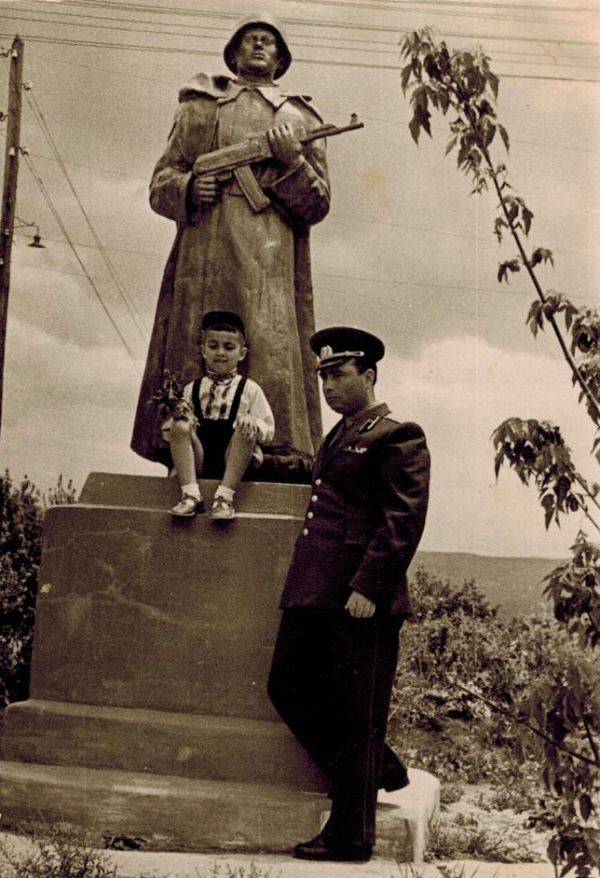
These childhood memories are my personal and intimate. I would not share them if it were not for one principle consideration. As a social philosopher in my professional education and practicing historian at Moscow State University, I insist that Khrushchev's “million two hundred” became one of the worst tragedies that our country experienced in the twentieth century. And a landmark event that divided the domestic history for periods "before" and "after".
My historian colleagues say: The Great Russian Revolution, Smoot, the famine of 1930, the 37 of the year are the most significant dates of our history; of course, called the Great Patriotic War. But no one remembers 1960 for a year and a "million two hundred," although the Khrushchev reduction of the Armed Forces had long-lasting negative consequences. And we feel its echoes to this day.
It was then that hazing began in the Soviet Army. Because after 1960, the officers who were ready to serve not for fear, but for conscience, became much less in the army. The abbreviated officer rushed home as soon as possible, he wanted to serve to retirement without hassle and quickly part with the army. Such an officer did not serve, but served. At the same time, the domino effect worked: young officers, recent graduates of military schools, began to file reports of dismissal, reasonably believing that time was irreversible and we had to manage to realize ourselves without waiting for the military pension, which was problematic, as it turned out.
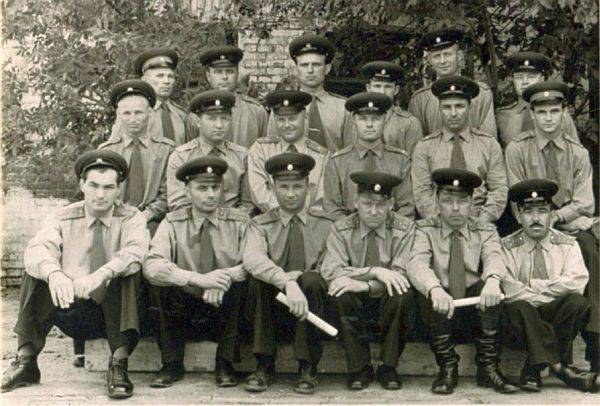
At the same time, a formula of behavior was elaborated, which those who wanted to quickly leave the army began to strictly follow: "Three times two hundred - a court of honor - one million two hundred." In other words, it was necessary to take on the chest three glasses of vodka (preferably without a snack), then catch the eye of a military patrol and be at the commandant's office. The court of officer honor stamped verdicts, the commander of the unit entered the name of the penalty box on the list for dismissal ...
Hazing could not help but begin: the officers shifted their duties to the sergeants, those to the old servicemen. And, the most terrible, in society the prestige of the officer's rank has fallen sharply. The times when the children of the political leaders of the country became the military, and the schoolchildren-medalists dreamed of officers' epaulets - these times are a thing of the past. After a "million two hundred" point of no return was passed.
I remember how already in my school years, the newspaper "Krasnaya Zvezda" constantly printed advertisements for admission to military schools. In vain! In most of them, until the beginning of 1970x there was practically no competition. The intellectual level of school cadets has noticeably decreased. Then the catch phrase was born: "Do not make a smart face! You are an officer!"
And this after the "one million two hundred" in our military camp, something unheard of and previously impossible was happening: my peers with the medals "For the Defense of the Caucasus" played to the toss ...
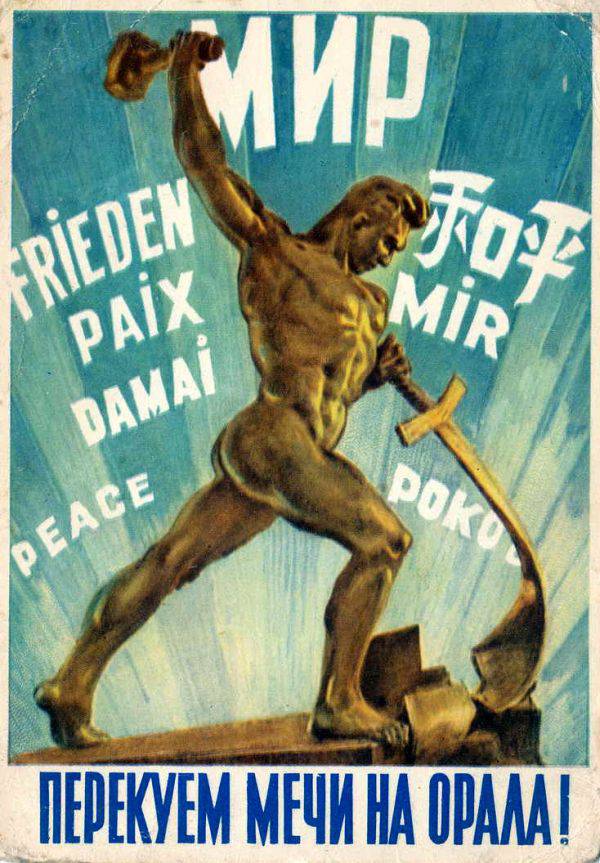
"Our regiment was melting before our eyes ..."
I will refer to the memoirs of the former commander of the missile and space defense (RKO) Colonel General aviation Voltaire Makarovich Kraskovsky, related to the spring of 1961, when he, after graduating from the academy, served as a flight commander in the aviation regiment:
"In those years, the creation of a new kind in the country's air defense forces - anti-missile forces. It was carried out through the transformation and rearmament of anti-aircraft artillery units, as well as by fighter aircraft of the Air Force and Air Defense. Some of the air regiments ceased to exist, and some were transferred to the air defense with the subsequent conversion into anti-aircraft missile units. There was an excess of flight personnel. They did not know what to do with the pilots. Most were demobilized from the Armed Forces, some managed to replenish the Civil Air Fleet, the others just changed their aviation flight schools made the release of officers who did not have time to complete their studies in full, with the assignment of the rank of junior lieutenants who were discharged from active service. And in the current aviation regiments there were commissions that were supposed to “clean up” the flight crew by firing into the reserve as health, age and other reasons.
Our regiment was melting before our eyes. The main part of the engineering staff went to Gatchina to retrain themselves to specialists of anti-aircraft missile forces. Pilots drove off in groups — who went where, the regiment commander departed for a new position, transferred to other units of junior aviation specialists. Personnel was becoming less and less. The remaining officers often got together and talked about what lay ahead of them. My whole family lived in the same way ... It was not necessary to count on something easy and simple, on the contrary, there was a presentiment of great complications "1.
VERBATIM
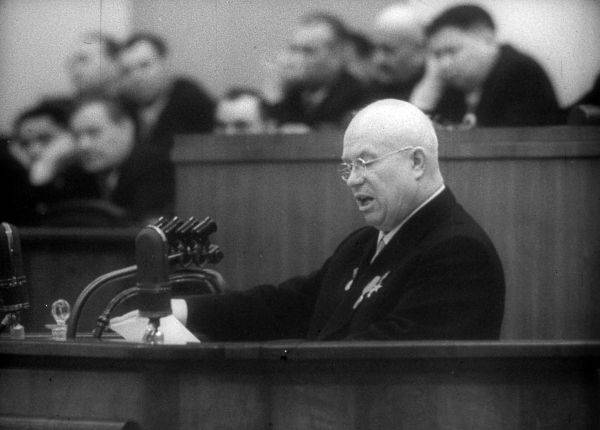
"... maybe cut by a million"
... I think that we should now go for a further reduction of armaments in our country, even without the conditions of reciprocity from other states, and a significant reduction in the personnel of the armed forces. I think it could be reduced, perhaps by a million, by half a million people ... it would have a very large positive impact on the international situation, and our prestige incredibly increased 6s in the eyes of all nations.
My opinion is based on the fact that ... we now have an assortment of missiles to solve any military problem ... How can any country or group of countries in Europe attack us if we can literally obliterate these countries? our atomic and hydrogen weapons? ..
... Our ideological disputes with the capitalist world will be resolved not by war, but by economic competition. Holding such a large army means lowering our economic potential ...
I am sure that this would be a very strong, terrific step ... gives us great political, moral and economic benefits.
Such a ... reduction would have to be stretched for a year and a half or two ... Because, having reduced such a number of people ... they need to be equipped ...
... maybe we should go to the territorial system (police forces). That is, the regiments and divisions will be created on a territorial basis (with the involvement of citizens to serve in them without interrupting production).
... It is necessary ... so that the security of our country not only does not decrease, but grow; The burden of maintaining the army would decrease, and the political position both inside the country and outside would grow stronger ... And we would have won a good position in the international arena in the fight for peace even more, the prestige of our country would grow even more.
... It is necessary to make this army so that it would be reasonable, so that it would be without excesses ...
Of course, it will be necessary to review the system of military schools: their profile, number.
All these activities will certainly facilitate the country's budget.
N. Khrushchev
8th of December 1959
On January 15, 1960, the Supreme Soviet of the USSR without discussion approved the Law "On a New Significant Reduction in the Armed Forces of the USSR." From the army and fleet up to 1 million 300 thousand soldiers and officers were to be fired - more than a third of the total number of the Armed Forces.
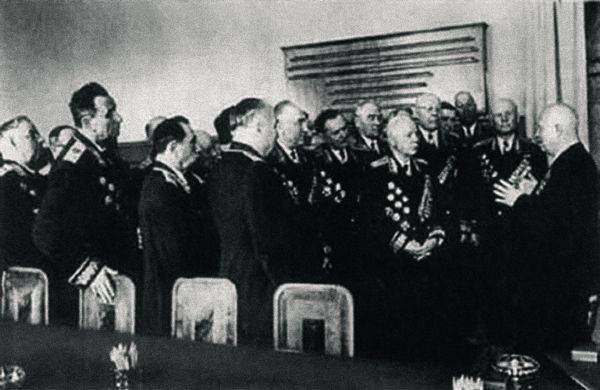
"In the army - the dominance of the elderly and a lot of outdated technology"
Did the military themselves understand that the Armed Forces need urgent reform? Of course! Warlords have long understood that the Soviet Union is unable to maintain a multimillion army. But they were irritated by the haste and lack of thoughtfulness of the reforms proposed by Khrushchev. Yes, and the very identity of the First Secretary did not cause them much enthusiasm. 21 November 1962, one of the first Heroes of the Soviet Union, Lieutenant-General Aviation Nikolai Petrovich Kamanin, who served as Assistant Commander-in-Chief of the Air Force in space, made an extremely expressive entry in his diary: "Khrushchev wasted on the edge of the speeches against the personality cult of Stalin, and he tries to create personality is such a cult, which, perhaps, was not under Stalin. We have no frank statements, no discussions and truly collegial decisions. Khrushchev is preparing for himself a bad place in history. After his death, he is threatened Ani labels: "corncob", "Khrushchob", "Great Spectator", "Tourist" and "Unsuccessful Diplomat" ... Corn, meat, milk and other internal problems - this is, in the end, still tolerable, but our military affairs and questions of preserving peace are of great concern ... Apparently, Khrushchev does not believe in the possibility of preserving peace, but he is not really preparing for war. In the army there is the dominance of old men and a lot of outdated equipment. Careful cleaning and rearmament of the whole army is needed; It is necessary to drastically reduce the number of infantry, artillery and tank units, as well as units of the Air Force and Navy, but at the same time strengthen the missile forces, anti-aircraft and missile defense "2.
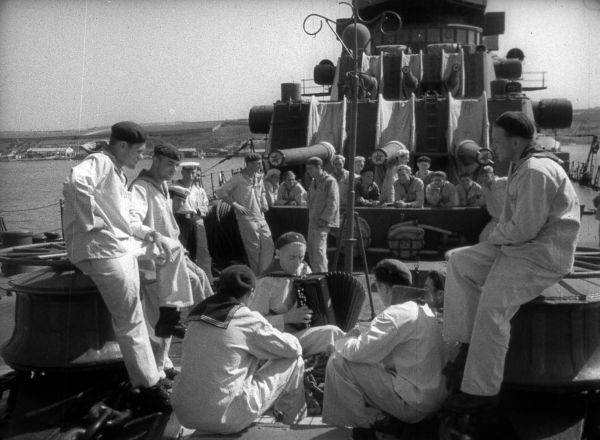
OBJECTIONS IN THE ESSENCE OF REFORMS WERE NOT. THERE WAS A STRONG FAILURE FOR THEIR CONDUCT OF THEM.
The Khrushchev army cuts have affected many officer, general, and even marshal fates. The commanders who tried to protest against the thoughtless reduction of the Armed Forces were mercilessly driven out of the army by Khrushchev. In March, 1959 was fired by air marshal Grigory Alekseevich Vorozheikin, in November 1959 was fired by air marshal Semyon Zhavoronkov (organizer of the first Soviet air raid on Berlin in the summer of 1941). In April 1960, Khrushchev sacrificed even larger figures who had dared "to have their judgment." Three Marshals of the Soviet Union lost their posts: Commander of the Belarusian Military District Semyon Tymoshenko, 1-th Deputy Minister of Defense of the USSR and at the same time Commander-in-Chief of the United Armed Forces of the Warsaw Pact countries Ivan Stepanovich Konev, 1-th Deputy Minister of Defense of the USSR and simultaneously Head of the General Staff Vasily Danilovich Sokolovsky. Of course, the marshals had both "spare airfields" and cash savings. They just broke the finish line career.
Not enough paper to list the broken fate ...
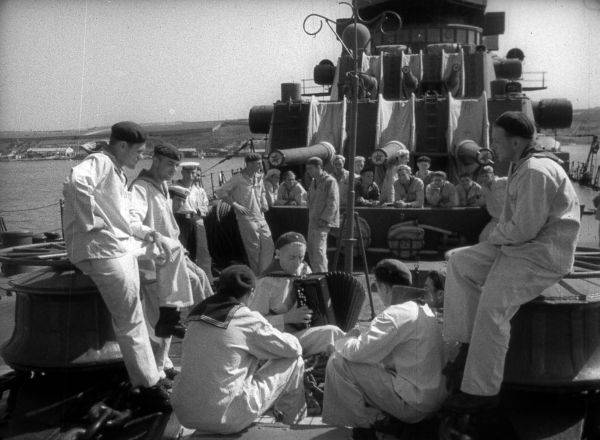
"Combat father, batyan-battalion ..."
Alexander Nikanorovich (Nikonorovich) Kharichev, born 1919, drafted into the Red Army in January 1940, started a war sergeant, distinguished himself in battles and was sent to the legendary “Shot” courses, after which he departed again to the front. A typical example of the rising social mobility during the war: a recent sergeant ended the war with a major, commander of a battalion of the 744 Infantry Regiment of the 149 Infantry Novograd-Volynsk Red Banner Order of Suvorov and Kutuzov, II degree division.
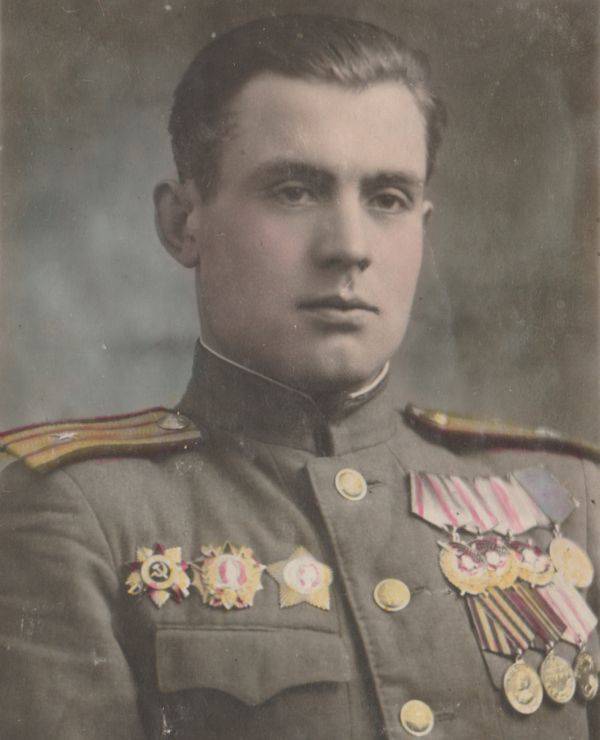
During the war years, Major Kharichev was awarded - a unique case for the commander of the rifle battalion - six military orders and the medal "For Courage", but in six cases out of seven received awards one or more steps below those to which he was presented. (In order for the reader to appreciate these figures, I’ll note: Major General Leonid Ilyich Brezhnev, the future General Secretary of the Central Committee of the CPSU, had five orders in 1945.) The award lists of Kharichev's battalion commander, laid out in the "Podvig Naroda" electronic data bank, are first-class source material for writing a biographical book or a serial movie ...
Here is just one statement:
20.09.1944 was awarded the Order of Suvorov, III degree (presented for the title of Hero of the Soviet Union). "Comrade Kharichev, on the right bank of the [river], the Western Bug exceptionally skillfully organized and practically carried out a number of command military orders, as a result of which, during 6-7 days, with fights, liberated Soviet Ukraine deep into the front over 150 kilometers, immediately crossed the Zapadny river Bug overcame three subsequent water obstacles and with the battles of 30 on July 1944 of the year came to the Vistula river.30 of July 1944 of the year comrade Kharichev secretly, with exceptional skill, quickly prepared the entire material part of the landing force, transport facilities and personnel for use. Crossing the river and on the night from 30 to 31 July with high tactical military skills, skillful organization of interaction between all types of infantry and artillery weapons, despite fierce resistance and heavy artillery, mortar and machine gun fire, landed on the left bank of the Vistula River. battles comrade Kharicheva repelled three fierce counterattacks of the enemy and firmly secured the conquered line. Personally himself comrade. Kharichev in these battles was an example of courage, resilience and courage, being wounded, he did not leave the battlefield, his calm willful nature was a symbol of victory for all personnel. "
After the war, Colonel Kharichev graduated from the Military Academy. Mv Frunze, commanded the regiment, served in the headquarters of the Baltic Military District. And then he got in the "one million two hundred" and was dismissed, when only a few months left until retirement ...
The officer who shed blood for the Motherland went to the “citizen”, silently swallowing the insult. But not all the front-line soldiers were silent.
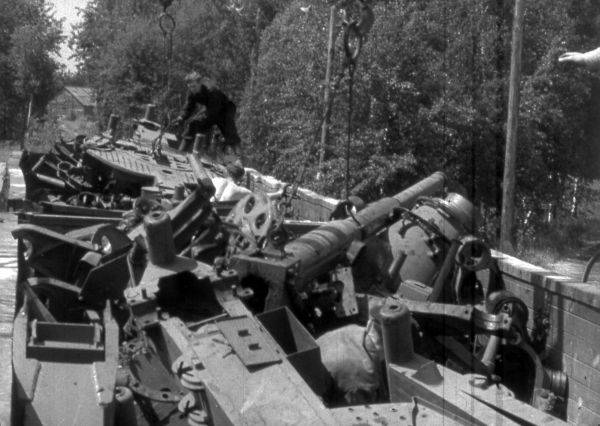
"People's power, and the people are shot"
15 January 1961, riots occurred in Krasnodar. 49-year-old Nikolai Stefanovich Malyshev, a former major who was also dismissed from the army in the number of "one million two hundred", became one of the spontaneous leaders of the crowd who gathered outside the regional committee of the CPSU. 7 May 1945, when only hours were left before Victory, Guard Senior Sergeant Malyshev, who fought from 20 August 1941, distinguished himself when the enemy’s heavily fortified defensive line was broken: "... a few minutes before the opening of the shelling, the line was torn, that threatened to delay the opening of fire, but Comrade Malyshev, neglecting the danger and risking his life, rushed to rectify and, under incessant shelling, eliminated five lines of damage, thereby delaying the volley. Malyshev behaved bravely and courageously in all yah "xnumx.
Major Malyshev, awarded the Order of the Red Star and the medals "For Military Merit" and "For the Defense of the Caucasus", "in civilian life" could only get a job as a laborer in the canteen ...
He did not hide behind his backs in peace. When the crowd broke into the regional committee building, demanding an urgent connection with Moscow, it was Malyshev who clearly formulated the main requirements. “Malyshev’s speech was not pogromic, but almost political ... He shouted to the crowd:“ Until when will we endure all this arbitrariness ”...’ They say that we have freedom of speech, press, assembly. But where is all this? We do not see this! "Then Malyshev said:" The people's power, and the people are shot "4.
The leaders of the spontaneous rally were arrested and convicted (two were sentenced to death). How happened the fate of Major Malyshev - is unknown.
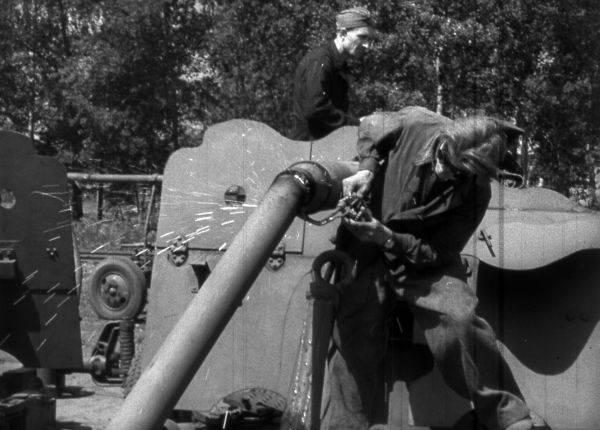
"They do not take in astronauts ..."
1 December 1965, Lieutenant-General Aviation Kamanin made a significant note in his diary: “Today, classes have begun for new astronauts. He didn’t attend Major Degtyarev (he’s 32, he is a doctor by training). Two or three days ago he led The center talks about the fact that he has no desire to leave the Moscow apartment and stop working on his thesis ... I think that enrolling in Degtyarev students is our mistake in the selection: the doctors “pulled” his health score, and we looked and missed hlyupika. With udo I’ll cross out the name of Degtyarev from the lists of astronaut listeners ... "5.
The logic of the young major is clear: why waste time and health in the Cosmonaut Detachment, when he can get an excellent job in one of the capital's scientific research institutes and receive much more than in the army ?! (During these years, the senior researcher with a Ph.D. degree received the same amount as the regimental headquarters chief. And the driver’s earnings of the capital's trolleybus were commensurate with the salary of the commander of the ocean submarine.)
This powerful shift in social psychology, which began after the end of the war, but finally formed and ended after 1960, is not fixed at all and has not been studied either by historians, or psychologists, or by sociologists and absolutely not understood by philosophers.
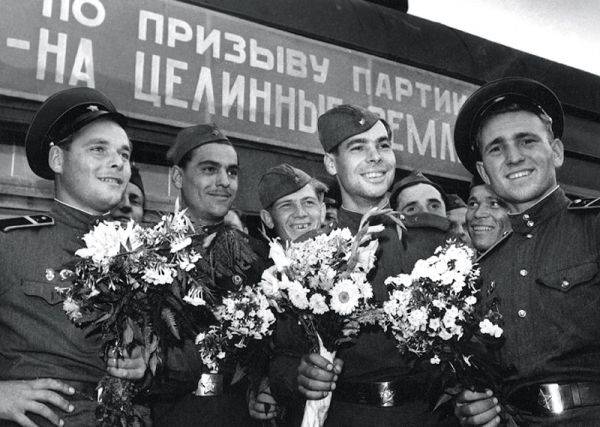
DO NOT PUT DOWN BY AX
"About the mighty, tempered pension pension ..."
3 March 1962 of the year in Pravda published a poetic feuilleton "Girevik" by the poet Stepan Oleinik, who hit retired officers
Given the political realities of those years, only Nikita Sergeevich Khrushchev, First Secretary of the CPSU Central Committee, could give permission for publication. Feuilleton was sent to discredit military retirees. The hero of the rhymed opus, a 42-year-old retired officer, was introduced to the public as an inveterate parasite and idler.
Having reviewed the newspapers,
Get on a fishing rod neighbor.
Lit up with gusto "Shipka"
To fish leaves the fish.
Quiet coastal, smooth river,
Yes, in line floats.
There is sand, there is weed,
Has served its - resignation!
Hour after hour, day after day ...
So I think about him
O mighty, hardened,
Kavalera pension.
Will the fish he podsekat
Seven years, say, five.
Yes, and weights exercise
Can, right, fifteen years! *
Nikita Sergeevich probably believed that the feuilleton would cause a stream of reading requirements to raise the bar for retirees. But the propaganda campaign choked at the very beginning. The publication in Pravda caused universal and undisguised irritation of the entire officer corps. An anonymous verse went to her hands to the poet, whose typewritten copy was with my father:
You are not a satirist,
Dear Stepan Oleinik.
They took the facts, perverted,
Feuilleton composed.
I am quite authoritative
I tell you tactfully,
From fellow soldiers and personally -
This is just NOT EXCITABLE!
* Oleinik S. Girevik // Journal of a retired officer // http://vessar.livejournal.com/34059.html
FREEZE
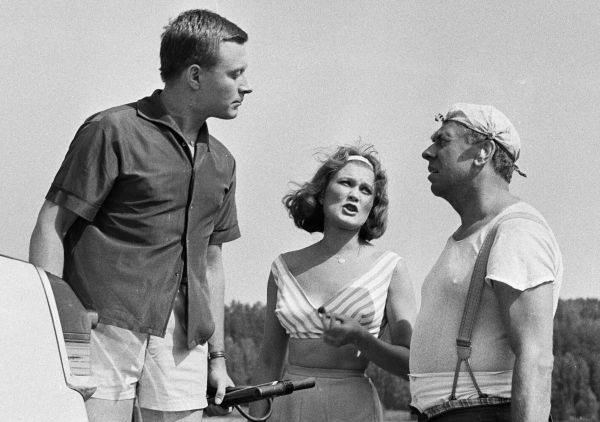
"With a crook, let's say we must fight!"
Military pensioners were hit even in the cult Soviet comedy film "Beware of the car"
In 1966, a comedy film by Eldar Ryazanov and Emil Braginsky "Beware of the Car" came out on the screens of the country, which was watched by 29 million viewers for a year. One of the film’s heroes, brilliantly played by Anatoly Papanov, invariably caused laughter in the crowded halls with colorful remarks:
"With a crook, let's say we must fight!"
“We’ll just be mercilessly fighting with people living, say, on unearned income!”
"They'll make you - and don't steal!"
And, of course, the sacramental: "Freedom to Yuri Detochkin!"
But few probably remember that the name of this character was Semen Vasilyevich Sokol-Kruzhkin. And that he was a lieutenant colonel in retirement. Let us turn to the ironic text of the script. "The grateful fatherland singled out thirty-hectare suburbs of Moscow region to a retired Sokol-Kruzhkin lieutenant colonel. Having received the plot, Semyon Vasilyevich followed in the footsteps of Michurin. True, unlike the great breeder, he was not an innovator and was addicted exclusively to one culture -" early strawberries. "Semyon Vasilyevich sought high yields of “early strawberries” on their own plot. Appreciative Muscovites paid him a lot of money in new markets. ”
Another echo of Khrushchev's reform, "one million two hundred" ...
Since Stalin's time, retired senior officers and generals had the right to receive personal plots, which significantly exceeded the notorious six hundred square meters. After Khrushchev sensitively cut already-appointed pensions to retirees — another blow to the pride and pocket of the front-line soldiers — they began to grow vegetables and fruits on their plots. And myself, and for sale. In the newspapers jamb went about feuilletons about storage speculators ...
From the point of view of the law, they did not commit offenses. Anyone who traded on the market paid tax for the trading place. For what branded yesterday's front-line soldiers? "I trade in own-grown strawberries!" The caricatured image of a retired lieutenant colonel prevented him from understanding the meaning of this simple phrase. But Sokol-Kruzhkin spoke the true truth. He really traded in his own labor. But even after half a century, Eldar Alexandrovich Ryazanov, judging by his last memoir book, continues to consider the retired lieutenant colonel a stupid trooper and ideological speculator. Yes, if only this outstanding director ...
Notes
1. Kraskovsky V.M. At the service of the inimitable homeland: memories. SPb .: VKA them. A.F. Mozhaisky, 2007 // http://militera.lib.ru/memo/russian/kraskovsky_vm/01.html
2. Kamanin N.P. Hidden space: In 4 book. M .: Infortext-IF, 1995. Prince 1 // http://militera.lib.ru/db/kamanin_np/62.html
3. Feat of the people. Database entry number: 23090071 // http://www.podvignaroda.ru/?n=230900
4. Kozlov V.A. Unknown USSR. The confrontation of the people and government. 1953-1985 M .: Olma-Press, 2006 // http://krotov.info/lib_sec/11_k/oz/lov_va6.htm
5. Kamanin N.P. Hidden space: In 4 book. M .: Infortext-IF, 1995. Prince 1 // http://militera.lib.ru/db/kamanin_np/65.html
Investigation of the Motherland
"Housing is provided only 24,3% ..."
Epilogue to the reform, not providing for the care of people
Mikhail Timoshenko, retired colonel
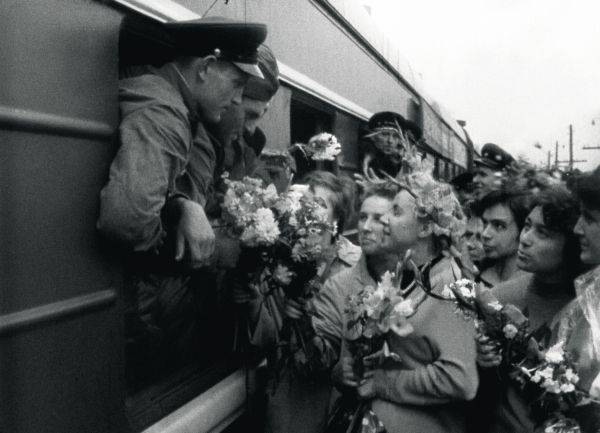
Khrushchev's army reduction was not the first. The impetus to reform 1960 of the year was the reduction of the sun by half a million "bayonets", planned during the life of I. Stalin. According to the secret report of the Minister of Defense G. Zhukov and Chief of the General Staff V. Sokolovsky sent to the Central Committee of the CPSU, on March 13, the number of Soviet Armed Forces was 1 1953 5 people. It was planned to reduce it by 396 038 people in three years. However, between 500 March 000 and January 1, 1953 was reduced for 1 1956 troops. And by December 989 822 in the staffing table remained 1 1959 3 posts.
Announced by law from 15 on January 1960, the reduction would take the army to 2 430 000 people. Total "invincible and legendary" decreased by two and a half times.
Deafening propaganda effect!
In February, 1963 at the retreat of the Defense Council in Fili, the First Secretary of the Central Committee set out his view on future armed forces. They should consist of two parts: a half-million grouping that serves and protects the 300 missile launchers, and the militia army - in the conditions of a modern war, in fact, the militia.
In the Central Committee of the CPSU there were reports about the situation with the dismissed officers. So, of the reduced 18 434 sent to Kharkiv, only 67,7% were employed, and only 24,3% were provided with housing. At the same time, 16,3% of the officers sent to Kharkov already had living space in other cities of the USSR. Confusion, more like chaos ...
This was confirmed by the KGB data, which had an extensive reference base and exclusive survey methods.
COMMITTEE OF STATE SAFETY AT THE COUNCIL OF MINISTERS OF THE USSR
Ex. N with / 3 / 001377 from 6.10.61
Ow. top secret
I report:
2. During the perusal of letters from servicemen of the Transbaikal Military District in just one week - from 10 to 17 in February 1958 - more than a hundred letters from officers were found, which condemned both the reduction of the armed forces and how it occurred. Here is one of the most typical letters: “For some time now we are under the fear of these events, but now this campaign has not passed us. Our division will be disbanded. From our regiment (according to rumors) only 5 people will remain, that is, almost everyone will be fired to the reserve ... We have to say that we are dressed and shod, but you would see how our officers are demobilized who have 2-3 children, no clothes, no money, nothing, and they are dismissed without a pension, 1,5 is not enough “2 years. Everybody’s mood is terrible. Now it’s just a total demobilization. Why is that?”
under the USSR Council of Ministers
Army General I. Serov
Not one country in the world in those years reduced its troops, either on its own territory or on foreign bases. On the contrary, the number, equipment and financing of foreign armies increased rapidly. But the military-political situation in the world was deteriorating. The American law "On enslaved peoples" (1958-1959), which stimulates the dismemberment of not only the USSR, but also the RSFSR; military clashes in the Taiwan Strait (between the PRC and pro-American Taiwan); American aggression in Lebanon; "Caribbean crisis"; Soviet-Chinese and Soviet-Albanian confrontation ...
And since the middle of the 1960-x begins increasing the number of Soviet Armed Forces, eventually reaching nearly five million people.
Information